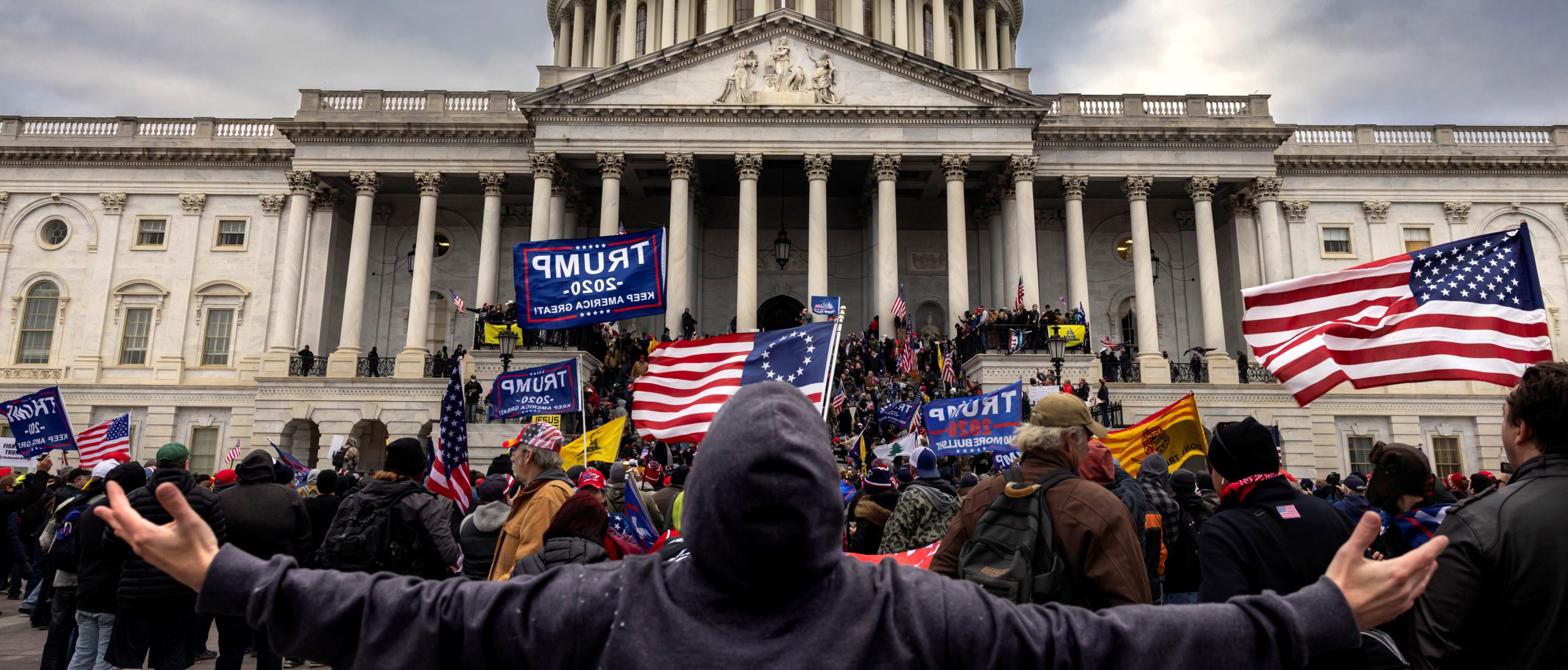The Supreme Court held Friday that the Department of Justice (DOJ) interpreted an obstruction statute too broadly when using it to charge hundreds of defendants for their behavior in the Jan. 6 Capitol riot.
The court sided 6-3 in Fischer v. United States with a defendant who challenged the statute, Section 1512(c)(2), which holds up to 20 years in prison for anyone who “obstructs, influences, or impedes any official proceeding.”
“To prove a violation of Section 1512(c)(2), the Government must establish that the defendant impaired the availability or integrity for use in an official proceeding of records, documents, objects, or as we earlier explained, other things used in the proceeding, or attempted to do so,” Chief Justice John Roberts wrote in the majority ruling. “The judgment of the D. C. Circuit is therefore vacated, and the case is remanded for further proceedings consistent with this opinion.”
Of the 1,424 defendants charged following Jan. 6, over 350 were charged with “corruptly obstructing, influencing, or impeding an official proceeding,” according to May numbers from the DOJ. Multiple defendants charged under the statute were granted early release in light of the justice’s decision to hear the case.
Joseph Fischer, who was charged under Section 1512(c)(2), argued the DOJ’s use of the statute to prosecute Jan. 6 defendants for obstructing Congress’ certification of the 2020 election was an “unprecedented expansion.”
Fischer noted it was enacted as part of the Corporate Fraud and Accountability Act of 2002 to target crimes of evidence tampering, focusing on “deterring fraud and abuse by corporate executives.”
The lower courts will now have to “assess the sufficiency” of the charge brought against Fischer — and likely hundreds of other defendants indicted under the same statute — in light of the Supreme Court’s ruling.
“The Government’s reading of Section 1512 would intrude on that deliberate arrangement of constitutional authority over federal crimes, giving prosecutors broad discretion to seek a 20- year maximum sentence for acts Congress saw fit to punish only with far shorter terms of imprisonment—for example, three years for harassment under §1512(d)(1), or ten years for threatening a juror under §1503,” Roberts wrote.
The ruling also has implications for special counsel Jack Smith’s election interference case against former President Donald Trump. Two of the charges in the indictment, which alleges Trump employed “knowingly false claims of election fraud to obstruct the federal government function by which those results are collected, counted, and certified,” are related to the statute.
The Supreme Court will also soon rule on Trump’s bid to dismiss the case based on presidential immunity. (RELATED: EXCLUSIVE: FEC Commissioner Rips Biden DOJ’s ‘Dangerous’ Decision Not To Intervene In Bragg’s Trump Prosecution)

WASHINGTON, DC – JANUARY 6: Pro-Trump protesters gather in front of the U.S. Capitol Building on January 6, 2021 in Washington, DC. Trump supporters gathered in the nation’s capital to protest the ratification of President-elect Joe Biden’s Electoral College victory over President Trump in the 2020 election. (Photo by Brent Stirton/Getty Images)
Justice Ketanji Brown Jackson joined the majority in limiting the statute’s scope.
“Notwithstanding the shocking circumstances involved in this case or the Government’s determination that they warrant prosecution, today, this Court’s task is to determine what conduct is proscribed by the criminal statute that has been invoked as the basis for the obstruction charge at issue here,” Jackson wrote in a concurring opinion. “I join in the Court’s opinion because I agree with the majority that §1512(c)(2) does not reach ‘all forms of obstructive conduct’ and is, instead, ‘limited by the preceding list of criminal violations’ in §1512(c)(1).”
Meanwhile, Justice Amy Coney Barrett penned the dissent, which Justices Elena Kagan and Sonia Sotomayor joined. Barrett wrote that the majority “failed to respect the prerogatives of the political branches.”
“There is no getting around it: Section 1512(c)(2) is an expansive statute,” Barrett wrote. “Yet Congress, not this Court, weighs the ‘pros and cons of whether a statute should sweep broadly or narrowly.'”
This is a breaking news story and will be updated.
All content created by the Daily Caller News Foundation, an independent and nonpartisan newswire service, is available without charge to any legitimate news publisher that can provide a large audience. All republished articles must include our logo, our reporter’s byline and their DCNF affiliation. For any questions about our guidelines or partnering with us, please contact licensing@dailycallernewsfoundation.org.



